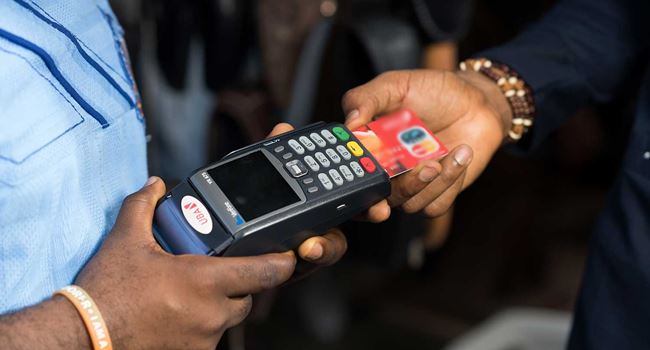Business
POS operators record N6.43trn in 12 months, as insecurity, unemployment, others trigger demand

In twelve months, Point of Sales (POS) operators transacted N6.43 trillion through their terminals, as insecurity, unemployment, and other factors compel adoption of the payment channel among Nigerians.
This is the highest level since POS debuted in 2012, when operators reported N46.86 billion, adding over N6.38 trillion to its transaction value within nine years.
POS has become an escape from traditional banking method, hence the volume of transactions surging from 655.8 million in 2020, the breakout year of COVID-19, to hit 982.8 million last year – a difference of 50%.
Factors fuelling POS rise in Nigeria
Insecurity: As insecurity rises in Nigeria, businesses and individuals are now walking with less cash, pushing them into the cashless policy of the Nigerian government.
Although, there are now armed robbers operating with PoS machine, to avoid being captured by Bank CCTV for victims that do not carry cash at home or on mobile – but nonetheless, the channel has reduced capital loss and threat to live.
Unemployment: Lack of widespread job creation across sectors has compelled graduates (from various fields) to apply for agent banking business, as banks convert POS machine into a mobile ATM.
This has contributed to the increase of POS terminals beyond retail point of sales. As of June 2020, there were 523,488 registered terminals, but that number has grown to 976,898 during the same period in 2021.
But 638,983 POS machines are in circulation as of June 2021, but only over 160,000 POS machines are believed to be active, as more banks invest in agent banking, while reducing their effort in setting up brick and mortar branches that house ATM machine.
Bank ATM failure: There are over 6,000 bank branches, with about 30,000 automated teller machines, but bank customers are often left disappointed due to the ATM machine’s inability to dispense cash.
This frustration has led to many embracing the agent banking in their area despite the charges of N100 per N5,000 withdrawals (N100 per N1000 for a single withdrawal) higher than the N35 fee charged on every third withdrawal within a month.
Read also: Afe Babalola details flaws of cashless policy in failing economy
Busy December: December festivities have always been a major driver of POS transaction growth, with the operators recording N699.75 billion last month.
It is the highest record for a single month, and this is always fueled by high patronage reported in cinema, shopping mall, neighbourhood supermarkets, eateries, hotels and other leisure centres, which are major users of POS machines across major states like Lagos.
COVID-19 pandemic: Since the outbreak of the coronavirus in 2020, electronic payment channels like agent banking has become the preferred withdrawal spot as banks reduced visits into their premises – although most of the restriction has now been lifted.
Also, the buying pattern of consumers changed after the pandemic, with retail sales moving digital due to the movement restriction, prompting customers to make online transactions, and this has stuck with many.
Join the conversation
Support Ripples Nigeria, hold up solutions journalism
Balanced, fearless journalism driven by data comes at huge financial costs.
As a media platform, we hold leadership accountable and will not trade the right to press freedom and free speech for a piece of cake.
If you like what we do, and are ready to uphold solutions journalism, kindly donate to the Ripples Nigeria cause.
Your support would help to ensure that citizens and institutions continue to have free access to credible and reliable information for societal development.
























